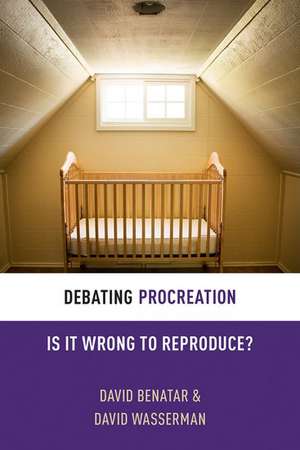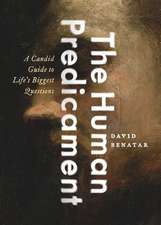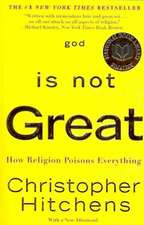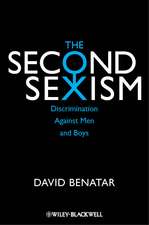Debating Procreation: Is It Wrong to Reproduce?: Debating Ethics
Autor David Benatar, David Wassermanen Limba Engleză Paperback – 25 iun 2015
| Toate formatele și edițiile | Preț | Express |
|---|---|---|
| Paperback (1) | 239.74 lei 32-37 zile | |
| Oxford University Press – 25 iun 2015 | 239.74 lei 32-37 zile | |
| Hardback (1) | 757.59 lei 32-37 zile | |
| Oxford University Press – 25 iun 2015 | 757.59 lei 32-37 zile |
Preț: 239.74 lei
Nou
Puncte Express: 360
Preț estimativ în valută:
45.90€ • 47.71$ • 38.05£
45.90€ • 47.71$ • 38.05£
Carte tipărită la comandă
Livrare economică 27 ianuarie-01 februarie 25
Preluare comenzi: 021 569.72.76
Specificații
ISBN-13: 9780199333554
ISBN-10: 0199333556
Pagini: 280
Dimensiuni: 208 x 140 x 15 mm
Greutate: 0.27 kg
Editura: Oxford University Press
Colecția OUP USA
Seria Debating Ethics
Locul publicării:New York, United States
ISBN-10: 0199333556
Pagini: 280
Dimensiuni: 208 x 140 x 15 mm
Greutate: 0.27 kg
Editura: Oxford University Press
Colecția OUP USA
Seria Debating Ethics
Locul publicării:New York, United States
Recenzii
A terrific and very accessible exchange between two highly accomplished philosophers that will not only provide readers with an excellent sense of the broader debate on procreative ethics but also introduce them to two original and contrasting contributions to that debate.
While Benatar advances probing arguments for the unusual view that all procreation is impermissible, Wasserman's carefully reasoned case for the permissibility of procreation is qualified in ways that many readers will find surprising. Both authors are highly distinguished philosophers whom it is exciting to follow as they develop and defend their clashing positions on the range of important issues they address.
Both incredibly well-written and full of new insight, Debating Procreation is the best that has yet been done on the difficult topic of procreative ethics.
In this concise volume, Benatar and Wasserman advance the procreative ethics debate clearly, provocatively, and innovatively. Each develops his side of the debate with originality, cogency, and wit, and engages with the latest arguments in the field. The problem is that they are both persuasive.
Debating Procreation: Is It Wrong to Reproduce? contains an excellent introduction to many of the ideas central to truly fascinating debates about the moral permissibility of progeny.
The book is a pleasure to read
Its authors, David Benatar and David Wasserman, are not only very capable philosophers, but also extremely gifted writers. The result is a highly engaging and provocative book.
While Benatar advances probing arguments for the unusual view that all procreation is impermissible, Wasserman's carefully reasoned case for the permissibility of procreation is qualified in ways that many readers will find surprising. Both authors are highly distinguished philosophers whom it is exciting to follow as they develop and defend their clashing positions on the range of important issues they address.
Both incredibly well-written and full of new insight, Debating Procreation is the best that has yet been done on the difficult topic of procreative ethics.
In this concise volume, Benatar and Wasserman advance the procreative ethics debate clearly, provocatively, and innovatively. Each develops his side of the debate with originality, cogency, and wit, and engages with the latest arguments in the field. The problem is that they are both persuasive.
Debating Procreation: Is It Wrong to Reproduce? contains an excellent introduction to many of the ideas central to truly fascinating debates about the moral permissibility of progeny.
The book is a pleasure to read
Its authors, David Benatar and David Wasserman, are not only very capable philosophers, but also extremely gifted writers. The result is a highly engaging and provocative book.
Notă biografică
David Benatar is Professor and Head of Philosophy at the University of Cape Town, South Africa. He is the author of Better Never to Have Been: The Harm of Coming into Existence (Oxford), and The Second Sexism: Discrimination Against Men and Boys (Wiley-Blackwell).David Wasserman works at the Center for Bioethics at Yeshiva University and is a Visiting Scholar in the Department of Bioethics of the National Institutes of Health. He has written extensively on ethical issues in reproduction, disability, genetics, biotechnology, and neuroscience.




























